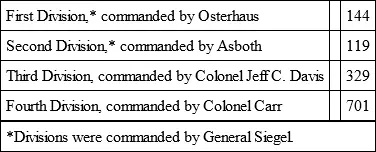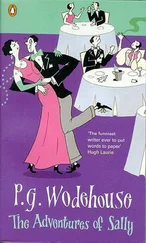Grenville Dodge - The Battle of Atlanta
Здесь есть возможность читать онлайн «Grenville Dodge - The Battle of Atlanta» — ознакомительный отрывок электронной книги совершенно бесплатно, а после прочтения отрывка купить полную версию. В некоторых случаях можно слушать аудио, скачать через торрент в формате fb2 и присутствует краткое содержание. Жанр: foreign_antique, foreign_prose, на английском языке. Описание произведения, (предисловие) а так же отзывы посетителей доступны на портале библиотеки ЛибКат.
- Название:The Battle of Atlanta
- Автор:
- Жанр:
- Год:неизвестен
- ISBN:нет данных
- Рейтинг книги:4 / 5. Голосов: 1
-
Избранное:Добавить в избранное
- Отзывы:
-
Ваша оценка:
- 80
- 1
- 2
- 3
- 4
- 5
The Battle of Atlanta: краткое содержание, описание и аннотация
Предлагаем к чтению аннотацию, описание, краткое содержание или предисловие (зависит от того, что написал сам автор книги «The Battle of Atlanta»). Если вы не нашли необходимую информацию о книге — напишите в комментариях, мы постараемся отыскать её.
The Battle of Atlanta — читать онлайн ознакомительный отрывок
Ниже представлен текст книги, разбитый по страницам. Система сохранения места последней прочитанной страницы, позволяет с удобством читать онлайн бесплатно книгу «The Battle of Atlanta», без необходимости каждый раз заново искать на чём Вы остановились. Поставьте закладку, и сможете в любой момент перейти на страницу, на которой закончили чтение.
Интервал:
Закладка:
The enemy fired wagon-nuts, pieces of chain, marble, gravel, and all sorts of projectiles. The overcoat worn by Colonel Dodge was perfectly riddled by the jagged holes made by these unusual missiles.
Colonel Dodge, the day after the battle, received a letter from a widow lady in Illinois, stating that she had three sons in the field fighting for the Union; that her youngest son, who was in feeble health, was in his Brigade, and she asked it as a special favor to her in her loneliness to have him discharged. The young man whose mother had such solicitude in his behalf was named Preston Green, and was killed in the action of the 7th, near Elkhorn, while bravely performing his duty.
During the battle, Colonel Dodge's horse was shot under him. An enlisted man, detailed as clerk in the Adjutant's office, was acting as orderly for Colonel Dodge. When his horse fell, he ordered the orderly to dismount and give him his horse. The orderly said, "You will be killed if you get on another horse; this is the third you have lost." But the orderly dismounted and stood where the Colonel had stood when he asked for the horse, and at that moment was instantly killed by a shot from the enemy. After the battle, the Adjutant, Lieutenant Williamson, found in the orderly's desk a note in which he said he was sure he would be killed in the battle, and in which, also, he left directions as to the disposal of his effects and whom to write to.
In General Price's command there was a Regiment or more of Indians commanded by Colonel Albert B. Pike. They crawled up through the thick timber and attacked my extreme left. I saw them and turned one of the guns of my battery on them, and they left. We saw no more of them, but they scalped and mutilated some of our dead. General Curtis entered a complaint to General Price, who answered that they were not of his command, and that they had scalped some of his dead, and he said he did not approve of their being upon the field. They evidently scalped many of the dead, no matter what side they belonged to.
The battle of Pea Ridge being one of the first of the war and one of unquestioned victory, had a great deal of attention called to it, and for months – in fact for years, and, I think even now – was considered to have been won by General Siegel. The proper credit was not given to General Curtis, while the history and records of the battle show that he was entitled to all of the credit, and fought the battle in opposition to Siegel's views. A statement of the losses shows what commands fought the battle. The total force engaged on our side, according to General Curtis's report, was 10,500 men, formed in four Divisions, Siegel's two Divisions being the largest, the Third and Fourth Divisions having less than 2,000 men each. The losses were:

Van Dorn's and Price's reports of the battle show how great their defeat was, and why it was, and while for some time General Curtis called anxiously on Halleck for more reinforcements, demanding that the column which was marching South in Kansas be sent to him, Van Dorn and Price, from the time they left the field, never stopped until they landed at Memphis, Tenn., their first movement being towards Pocahontas, with a view of attacking Pope in the rear, who was at New Madrid. Finding New Madrid captured, they turned their forces to Desarc, and were then transported by boats to Memphis. This relieved Missouri of any Confederate force in or near its border, and General Halleck immediately gave General Curtis orders to move on the flank of Van Dorn and keep up with him, but through that swampy, hilly country it was impossible for him to meet Van Dorn, and Curtis with his Army finally landed at Helena, Ark., and most of it joined the Vicksburg siege.
Captain Phil Sheridan was the Quartermaster and Commissary of General Curtis's Army. He kept us in flour, meat, and meal, and sometimes had my whole regiment detailed in running and protecting mills, driving cattle, etc. He had great difficulty in obtaining details, as at that early day a good many commanders, and especially General Siegel and his officers, did not think it the duty of a soldier to be detailed on anything but a soldier's duty; so Sheridan naturally came to me, as he was my Quartermaster while I commanded the post at Rolla, and when with the marching column he camped and tented with me. Sheridan and Curtis had considerable difficulty, and Curtis relieved him and ordered him to report to General Halleck, at St. Louis. We who knew Sheridan's ability, and the necessities of our Army, did all we could to hold him with us. He left us just before the Battle of Pea Ridge, and our Army saw a great difference after he was gone. He used to say to me, "Dodge, if I could get into the line I believe I could do something;" and his ambition was to get as high a rank as I then had and as large a command – a Colonel commanding a Brigade. In his memoirs he pays the Fourth Iowa a great compliment, and says they will have a warm place in his heart during his life.
During the Battle of Pea Ridge Sheridan was at Springfield, Mo., preparing to turn over his property to the officer who was to relieve him, and he there showed his soldierly qualities. The dispatches from Curtis's army had to be relayed at Springfield. The first dispatches after the battle were sent all in praise of General Siegel, and by portions of his command, claiming he had won the battle. Sheridan, knowing this to be untrue, withheld the Siegel dispatches until the telegrams from General Curtis to General Halleck were received, and sent them forward first, notwithstanding the fact that he felt he had been unjustly treated by General Curtis.
This Army had no water or rail communication. It was 300 miles from its nearest supply-depot, and therefore it had to live off of a country that was sparsely settled by poor people; but Sheridan showed that dominant combination of enterprise and energy, by running every mill and using every means of supply within fifty miles of us, that he developed so fully later in the war. He kept us and our stock fairly well supplied; as I remember, there were no complaints. When General Curtis concluded to relieve him, I went with others and endeavored to induce him to change his mind. I had had experience and knew what it was to have an Army well fed a long ways from its base, and I felt that if we lost Sheridan we would suffer, which later proved to be the case; but General Curtis did not listen to us. In fact, he was angry at our appeal, and his Adjutant, General McKinney, came to see us afterwards and urged us not to press the matter; if we did, he said, we might go to the rear with Sheridan.
At the Battle of Pea Ridge and during the campaign we were very destitute of all hospital appliances for the care of the wounded, and the ability and ingenuity of our medical staff in supplying our wants was inestimable. The day after the battle, when we had all our own wounded and so many of the enemy's with us, Mrs. Governor Phelps, the wife of Governor Phelps, of Missouri, who commanded the Twenty-fifth Missouri Infantry, arrived on the field with a general supply of sanitary goods, a part of which had been sent to my Regiment from Philadelphia by the father and mother of Captain Ford, who was then a Lieutenant in Company B, Fourth Iowa Infantry. These were a great relief, as fully one-third of my command were killed and wounded, and were suffering for want of this class of goods. Mrs. Phelps spent her time day and night on the field aiding the surgeons and succoring the wounded.
General Curtis endeavored to send all the wounded to the rear who could stand the trip. I was hauled 250 miles over a rough road in an ambulance, and if any of you have had the same experience you can judge what I suffered. Captain Burton, of my Regiment, who was severely wounded in the arm, sat on the front seat of that ambulance the whole distance, and never murmured, although he came near losing his arm from the exposure. It was during this ambulance trip, while lying on my back, that I received a telegraphic dispatch from General Halleck notifying me of my promotion for services in this battle. It was thought, and was also stated in the papers, that I could not live, and I told General Halleck afterwards that they expected to have the credit of making a Brigadier-General and at the same time to have a vacancy, too, but that on the vacancy I fooled them, for the promotion insured my getting well.
Читать дальшеИнтервал:
Закладка:
Похожие книги на «The Battle of Atlanta»
Представляем Вашему вниманию похожие книги на «The Battle of Atlanta» списком для выбора. Мы отобрали схожую по названию и смыслу литературу в надежде предоставить читателям больше вариантов отыскать новые, интересные, ещё непрочитанные произведения.
Обсуждение, отзывы о книге «The Battle of Atlanta» и просто собственные мнения читателей. Оставьте ваши комментарии, напишите, что Вы думаете о произведении, его смысле или главных героях. Укажите что конкретно понравилось, а что нет, и почему Вы так считаете.












